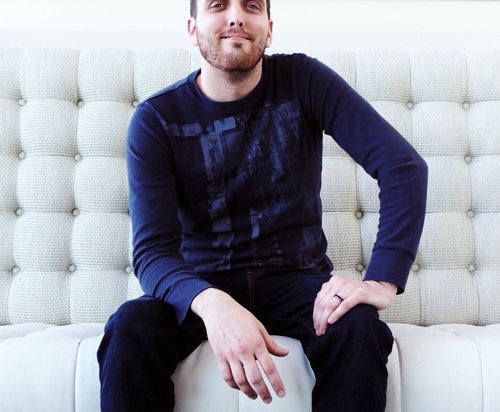5 Things You’ll Learn at Coding Boot Camp (Besides How to Code)

As a child, Corey Stagner frustrated his mother by taking apart electronic devices he found around the house. “I’ve always loved tinkering,” he said. “I just didn’t know how to put things back together.”
So it was no surprise that when the mechanically minded Corey grew up, coding sparked his interest. A Google search led him to The Coding Boot Camp at UNC Charlotte where he took on the challenge of attending classes three times a week while still working a full-time job.
“I wanted to learn everything I could,” said Corey. “I went all in.”
In fact, Corey was so eager to learn that he spent more time studying and researching than the program required. He even took on extra homework assignments. And all that hard work paid off when, shortly after graduation, Bank of America offered him the position of assistant vice president – application developer.
Corey learned plenty of hard skills at boot camp, but those weren’t the only new skills that contributed to his success. Here are five important things Corey learned at boot camp—besides JavaScript.
1. How to be a team player
Boot camp requires dedication, but students never go it alone. The collaborative environment encourages and teaches teamwork, a skill which is highly valuable in the workplace.
“Before boot camp, I’d never truly worked on a team before,” said Corey. “I’d worked side by side with people, not together. I was used to doing things the way I wanted to do them.”
Partnering with his classmates on projects taught Corey important lessons about teamwork, like smart ways to settle differences of opinion and when to let someone else take the lead. Now, he feels more confident about working with other people to achieve a common goal, rather than plugging away alone.
2. How to give your all
Corey has become something of an evangelist for the boot camp, recommending it to many aspiring coders. When prospective students ask for his advice, however, he doesn’t mince words.
“I tell them that unless they’re prepared to give their best effort, they could end up wasting their money,” he said.
Corey urges students to take advantage of everything the boot camp has to offer—including extra tutoring, the career services center, and the top-notch faculty.
“The instructors and TAs were phenomenal,” he said. “If students are serious about learning, they’ll succeed.”
3. How to change the world
The projects Corey worked on during his boot camp stint were more than just homework assignments. They were programs with the potential to make a real-world impact through technology.
The idea for one project—an app that allows patients to track their symptoms, medications, and side effects—was inspired by Corey’s own diagnosis of multiple sclerosis. It would make his own life, and the lives of countless other patients, a whole lot easier.
“I see my neurologist every three months,” he explained. “A lot can happen between visits. It’s hard to remember every headache.”
4. How to have fun
Boot camp is a lot of work, but that doesn’t mean students don’t enjoy the process. Corey discovered this firsthand, still finding time for fun despite his busy schedule.
“Anyone going to school part-time and working full-time would find it challenging,” said Corey. “But it was a close-knit group of people. We learned from each other and helped each other grow. Creating projects together was a lot of fun.”
5. How to ask for what you want
You don’t know what’s possible until you ask for it—but knowing when and how to ask for what you want is a skill in and of itself. Corey developed this skill at boot camp, learning to ask for extra help when he needed it and extra work when he wanted it.
He put this newfound skill to great use, albeit inadvertently, when he interviewed for his current position at Bank of America. He didn’t think he’d done well in the interview, so when they called to negotiate salary, he was caught off guard and threw out a high number.
“After I got off the phone I remember thinking They’re never going to call me back, they’re probably laughing,” he said.
He was wrong. Not only did Bank of America agree to the number, but they rounded it up.
Tech skills are just the beginning
Corey described his entire boot camp experience as “an amazing ride.” It’s a ride that equipped him with all the skills he’ll need to follow his chosen career path with confidence. Better yet, he gained plenty of skills he’d never have expected going in—ones that he’ll apply in every aspect of his life.

 Live Chat
Live Chat